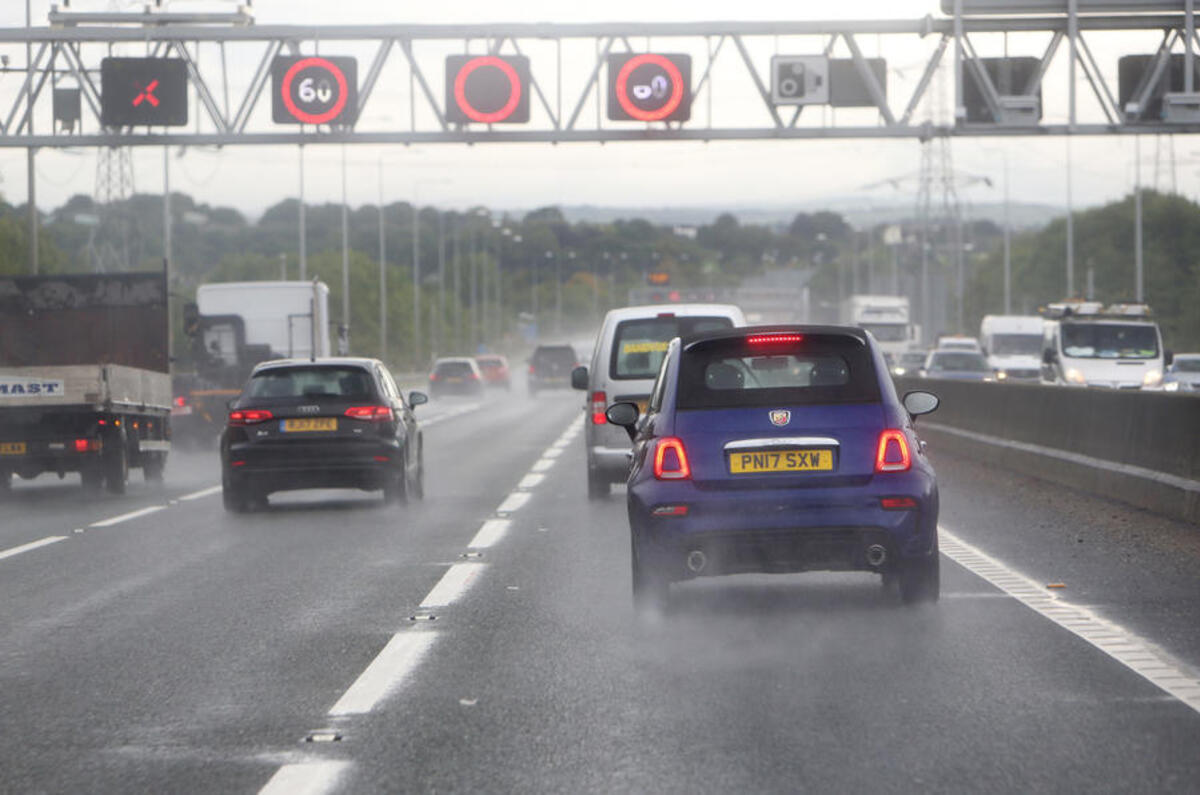Highways England has been referred to the Crown Prosecution Service (CPS) to consider a charge of corporate manslaughter.
The referral follows the death of Nargis Begum on a stretch of smart motorway on the M1 in South Yorkshire.
Today a Doncaster coroner held a pre-inquest review hearing for Mrs Begum’s case, during which she decided that there was “more than sufficient evidence” for the charge to have “proper scrutiny by the CPS,” as quoted by Civil Engineer magazine.
Begum was killed in September 2018 after her car broke down near Woodall Services on the M1. She exited the vehicle after calling for help and was hit by her own car after it was impacted by another vehicle.
Coroner Nicola Mundy made her decision on the basis of how long the stationary vehicle went undetected. She noted that Begum’s car was hit 16 minutes after it broke down and that it took six minutes for warning lights to be lit above the carriageway.
Another key factor was reports of previous near accidents on smart motorways, where 38 people, including Begum, have been killed in the last five years.
Munday said: "I will invite the CPS to review this matter and undertake any investigations they deem necessary to enable them to take the decision as to whether or not criminal charges are appropriate in this case."
In defence of Highways England, lawyer Nicholas Chapman said: "The fact that Highways England once placed a hard shoulder on the road does not mean they are under a general common law duty to do so.
“There can be no assumption that Highways England irrevocably assumes responsibility to provide hard shoulders on all motorways for all time. There is no duty of care so the case for corporate manslaughter falls at the first hurdle."
Edmund King, president of the AA, said: “This is a significant moment for ‘smart’ motorways and highlights many failings, previously raised by the AA, that should have been spotted before the first fatalities, and clearly need urgent action.
“We will await the CPS conclusions in due course, but this decision will once again raise serious questions regarding the permanent removal of the hard shoulder.”
The news of the CPS referral follows months of high-profile scrutiny of smart motorways. Last month, a YouGov poll found that most British people opposed the roads, with 64% considering them less safe than conventional motorways with hard shoulders.
This culminated in the admission by transport secretary Grant Shapps in February that smart motorways are “anything but”. Despite this, however, he has ruled out their removal.
READ MORE
Transport secretary: smart motorways are "anything but"




Join the debate
Add your comment
The lawyer for Highways England should consider his words carefully: If as he suggests, Highways England has no duty of care towards the motoring public, then why do they install speed cameras? Aren't they provided to reduce speeding and save lives, as we are always told and doesn't that suggest that HE is demonstrating a duty of care? If not, should we assume the speed cameras are more about generating income from the motorist, as many suspect?
If the car in front is stationary, you have to have noticed in enough time, and all the people behind you need to notice you slamming your brakes on too.
And that will work fine if everyone leaves sufficient space. Have you ever noticed the chevrons painted on the road surface? Stick to those gaps and motorways will be safer places.
All drivers should travel sufficiently far behind the vehicle in front to enable them to stop if necessary. The problem is not smart motorways but stupid motorists tailgating one another and therefore having no time to react. Lorry drivers are absolutely the worst culprits. I see artics nose to tail on every motorway journey I make, even in the pouring rain. Can HGV drivers please explain why they do this. Is it some misplaced desire to save fuel by slipstreaming the truck in front? I would love to know.
Re your query on Lorry drivers, they drive so close to each other sometimes to save fuel,and, they work bloody hard, and, I'm not a Lorry driver.